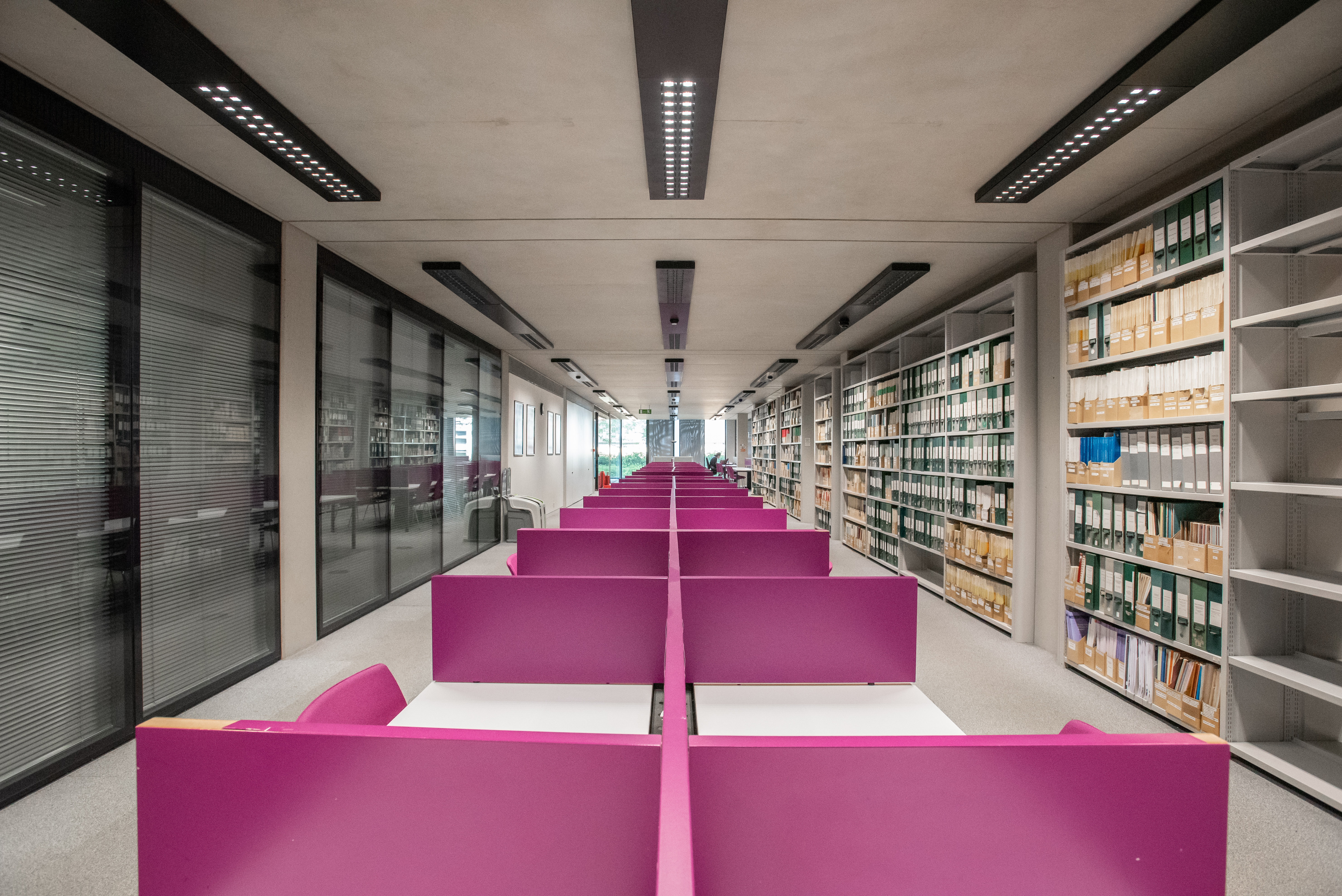The primary purpose of academic libraries is to support the research and study of undergraduates, postgraduates, and academic staff, by providing study space and resources. Academic libraries offer silent or quiet study spaces for individual readers, as well as Group Study Rooms for discussion and presentation. Librarians may also be involved with induction tours for new students; Study Skills sessions (e.g. research or referencing technique sessions); and the provision of adjustments for readers with accessibility needs.
The library system at Oxford University differs from other academic settings because of the collegiate and departmental structure of the University. Other UK universities tend to have fewer, larger libraries, and therefore have more members of staff in each location.
Each College has one or more libraries, serving primarily the students, researchers, and staff within the College. As such, College libraries hold collections covering all the subjects studied by their own community. They may also hold Special Collections; for example, manuscripts or early printed books donated by historic College members.
There are also Faculty libraries with a collection specializing in one or more subjects. Subject Librarians are responsible for keeping the Library up-to-date with the material needed by readers; this includes physical resources and e-resources.
The Old Bodleian is the historic centre of Oxford’s library system. Librarians and library assistants must balance sustained research needs from the academic community with the interest of tourists visiting the site.
Our testimonial comes from Craig, a former trainee with extensive experience in the Oxford library system.
Craig Finlay
Reader Services Librarian, Social Sciences Library, University of Oxford.

After finishing University, I did a couple of temporary jobs, including working for Royal Mail and the NHS, where I helped with a data quality project. This gave me an interest in work which involved organising information, but I also wanted to work directly with people, so I did two weeks’ work experience at a public library in my home town of Bedford, then soon after I applied for the Graduate Trainee scheme with Oxford University libraries.
My traineeship involved working at three quite different small libraries: Plant Sciences, Geography and Zoology. This was a useful learning opportunity as Geography was very busy with lots of students coming and going, Zoology had an expansive special collection on ornithology used by many visiting researchers, while Plant Sciences was undergoing a big project to move the collection to the nearby Science Library.
After completing the scheme, I wanted to stay in Oxford to work while completing my Library Masters at UCL. I was appointed at the Social Science Library (SSL) as Library Assistant in Technical Services. This role involved dealing with book receipts and processing, as well as checking in serials, but also doing plenty of customer-facing readers services work too.
Over time, I was given more responsibilities, including looking after the library’s IT facilities and presenting training sessions for colleagues on subjects such as Electronic Legal Deposit and Open Access Publishing.
A few years later the opportunity of a one-year secondment came up as Reader Services Librarian, which appealed to me as it was a chance to get experience in management. I was fortunate to be appointed to the job permanently the year after the end of the secondment.

My responsibilities include recruiting, training, and managing a team of staff (usually around 12-15 people) and working closely with the head librarian of the SSL to maintain and keep improving on the wide range of services the library offers. The role can be busy and varied, and I need to be prepared to deal with issues at short notice, as well as plan longer-term projects like book moves.
Working in an academic library can be demanding but is very rewarding; you feel that you make a difference to important research and education – and it is always nice to receive kind comments and appreciation from the readers.

Recent Comments